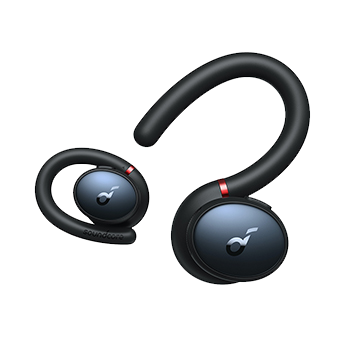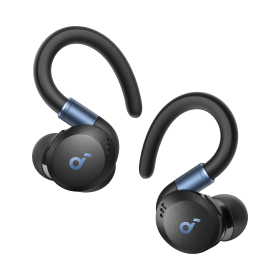Are Bluetooth Headphones Safe: What You Should Know
In the era of wireless technology, Bluetooth headphones have become an essential part of modern life. They offer convenience and freedom of movement while listening to music, making calls, or watching videos. But with new technology comes new concerns. One of the most common questions asked is “Are wireless earbuds safe?”. In this article, we will address these concerns and provide you with everything you need to know about the safety of Bluetooth headphones.
What is Electromagnetic Radiation?
This radiation refers to a form of energy that travels through space in the form of waves and can be emitted by both natural and man-made sources like cell phones, Wi-Fi routers, X-rays, and the sun.
EMR mainly has two types, namely ionizing and non-ionizing radiation. Ionizing radiation has enough energy to ionize atoms and molecules, which may lead to cell damage and an increased risk of cancer. Examples of ionizing radiation include X-rays and gamma rays. In contrast, non-ionizing radiation has less energy and cannot ionize atoms. Non-ionizing radiation encompasses various types of waves, such as microwaves, radio waves, infrared radiation, and Bluetooth. So, is Bluetooth dangerous due to radiation? Actually, non-ionizing radiation like Bluetooth radiation has little effect on people. Let’s look at them in detail below.
What’s the Connection Between Cancer and Radiation?
Concerning radiation, we often link it to cancer as lots of news and examples around have proved this. However, does Bluetooth cause cancer? It may not.
According to experts, exposure to ionizing radiation is a known risk factor for cancer. Ionizing radiation has enough energy to remove tightly bound electrons from atoms and molecules, creating charged particles that can damage or break DNA strands. Over time, this damage can accumulate and lead to mutations that increase the risk of cancer.A 2024 study of 600 participants reported an association between prolonged Bluetooth headset use (≥3 hours/day) and a higher incidence of thyroid nodules. However, this preliminary finding warrants further validation.
However, do wireless earbuds cause cancer? Not really, the risk of developing cancer from low-level exposure to non-ionizing radiation, such as the type of radiation emitted by Bluetooth devices, is still not clear. The World Health Organization (WHO) and the International Agency for Research on Cancer (IARC) classify radiofrequency radiation as a "possible carcinogen," which means there is limited evidence linking it to cancer in humans and further research is needed to fully understand the potential risks.
Are Bluetooth Headphones Safe?
Since more research about “Does Bluetooth headphone cause cancer” is ongoing, it may be hard to give an absolute answer to questions like “are wireless headphones safe”. Generally, the current evidence suggests that Bluetooth headphones are relatively safe as Bluetooth technology belongs to non-ionizing radiation, and studies have suggested that this level of radiation emitted by Bluetooth headphones is generally lower than those from cell phones and others.

Key Points:
“
- Non-ionizing radiation lacks the energy to damage DNA or cells, making it generally safe for human exposure.
- Bluetooth headphones emit 10–400 times less radiation than cell phones, reducing potential risks ”
However, is it safe to wear Bluetooth headphones all day? Actually, it's better to use them responsibly. For example, don't wear Bluetooth headphones all the time or at maximum volume, as doing so could increase the risk of hearing damage. Additionally, it's a good idea to take frequent breaks from wearing them and to keep them clean to prevent the buildup of bacteria. And for sleeping with headphones, it’s advised to wear specially designed sleeping earbuds like soundcore’s Sleep A30 earbuds for better sleep.
Are Bluetooth Headsets Safe for Driving?
Bluetooth headsets are generally considered safe for driving as they allow you to keep both hands on the wheel and your eyes on the road, reducing the risk of accidents caused by distracted driving. In fact, some studies have shown that using hands-free devices like Bluetooth headsets can be safer than using a cell phone directly, as they reduce the cognitive workload associated with holding a phone and driving at the same time.
In addition, Bluetooth headsets emit much less radiation than cell phones, which is another reason why they are generally considered safe for use while driving. However, it is still important to follow local laws and regulations regarding cell phone and Bluetooth headsets use while driving.

Bluetooth Headset Regulations:
“
Prohibited in Both Ears: California, Louisiana, Maryland, Minnesota, Virginia, Washington.
One Ear Allowed: Florida, Georgia, New York, Ohio (single earbud permitted for calls)
Exceptions: Emergency responders and hearing aids are exempt ”
Podor lawPrecautions for Using Bluetooth Headphones
To use Bluetooth headphones safely, here are some precautions to take:
| Precaution | Recommendation |
| Usage Duration |
|
| Volume Level |
|
| Device Quality |
|
| Distance from Body |
|
FAQ
Is Bluetooth bad for your brain?
There is no conclusive evidence to suggest that Bluetooth technology is bad for your brain. Bluetooth technology falls under the category of non-ionizing radiation to transmit data between devices. This type of radiation does not have enough energy to ionize atoms or molecules, meaning it is highly unlikely to cause cancer and brain damage.
Are Bluetooth earphones safer than wired?
Compared to the wired earphones, are the Bluetooth headphones bad for you? This depends. Both Bluetooth and wired headphones have their own advantages and disadvantages. For radiation exposure, Bluetooth headphones only emit very low unharmful non-ionizing radiation. While do wired headphones emit radiation? They emit less EMR radiation as they don't use wireless technology to connect to your device.
However, wired headphones can pose a safety risk if they get tangled or cause an obstruction, such as while exercising or driving. So it generally depends on where and how you use them. And Bluetooth wireless earphones are more and more popular due to their portability.
Do airpods cause cancer?
No, AirPods or any other Bluetooth earbuds use non-ionizing radiation, which means it does not have enough energy to ionize atoms or molecules and cause cancer. Additionally, the radio frequency (RF) radiation emitted by AirPods is generally considered to be safe within the exposure limits set by regulatory agencies such as the Federal Communications Commission (FCC) in the US.
Does wifi cause cancer?
Currently, no conclusive evidence to suggest that Wi-Fi causes cancer. Wi-Fi technology uses radio waves, which are a form of low-level non-ionizing radiation, similar to Bluetooth technology. The World Health Organization (WHO) states that "current evidence does not confirm the existence of any health consequences from exposure to low-level electromagnetic fields."
Conclusion
Now that you can answer the question “Are Bluetooth earbuds bad for you”. Bluetooth headphones are generally safe to use, and the risks associated with their use are minimal. By taking some precautions and using Bluetooth earbuds correctly and responsibly, you can minimize your exposure to electromagnetic radiation and enjoy the benefits of wireless technology without worrying about any potential health risks or actual problems like why earbuds hurt my ears.





























































